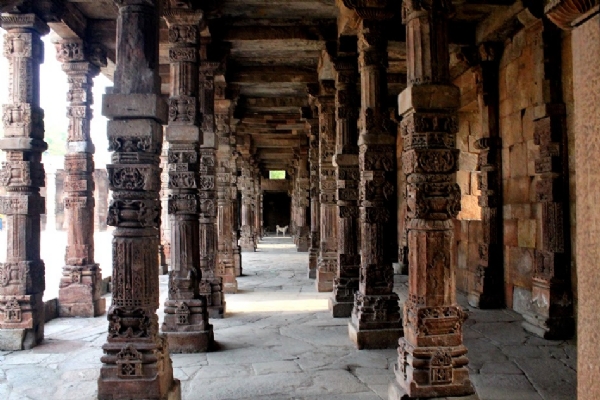Delhi court rejects plea seeking restoration of 27 Hindu and Jain temples within the Qutub Minar complex
10 Dec 2021 11:05:09
New Delhi, Dec 10: A Delhi court has rejected a civil suit seeking restoration of Hindu and Jain deities inside Quwwat Ul-Islam mosque located at the Qutub Minar complex. Notably, the petition was filed on behalf of Hindu deity Lord Vishnu, Jain deity Tirthankar Lord Rishabh Dev and others, seeking the restoration of 27 Hindu and Jain temples “dismantled, desecrated and damaged under the command and orders of Qutub-ud-din-Aibak”.

The Court said that wrongs may have been committed in the past, but such wrongs cannot be the basis for disturbing peace of our present and future. "India had a culturally rich history. It has been ruled over by numerous dynasties. During arguments, the counsel for plaintiff has vehemently argued on the point of national shame. However, nobody has denied that wrongs were committed in the past, but such wrongs cannot be the basis for disturbing peace of our present and future", said Civil Judge (South) Neha Sharma at Saket court.
The plaintiffs had argued, “the right to worship has been bestowed under Article 25 and 26 as a fundamental right”, which the court held was “devoid of merits”. The court held that “fundamental rights enshrined under Article 25 and 26 of the Constitution are not absolute in nature”. It further said, “It is an admitted fact that the suit property is a mosque built over temples and is not being used for any religious purpose, no prayers/namaz is being offered in the suit property”.
The court held that the plaintiffs did not have the right to demand the restoration of the temple due to the Places of Worship Act 1991 which was enacted to preserve the “secular fabric” of the nation. “Our country has a rich history and has seen challenging times. Nevertheless, history has to be accepted as a whole. Can the good be retained and bad be deleted from our history? Thus, harmonious interpretation of both the statutes is required to give full force to the objective behind the Places of Worship Act, 1991,” the court said.
It further said that “such ancient and historical monuments cannot be used for some purpose which runs counter to its nature as a religious place of worship, but it can always be used for some other purpose which is not inconsistent with its religious character”.
On the other hand, the Court admitted that the Mosque was indeed built over the desecrated ruins of temples. The Court said that it is an admitted fact that the suit property is a mosque built over a temple but it is not being used for any religious purpose and no namaz is being offered there. “Hence, in my considered opinion, once a monument has been declared to be a protected monument and is owned by the government, then the plaintiffs cannot insist that the place of worship must actually and actively be used for religious services,” the court said.
“Qutubdin Aibak, a commander of Mohammed Gauri dismantled/ destroyed Shree Vishnu Hari temple and 27 Jain and Hindu temples along with constellations of respective deities and raised some inner constructions within the temple complex,” the plea said.
The petition further stated that Qutubdin Aibak did not completely demolish the existing temples and build Quwwatul Islam Masjid by using materials from the temples, adding that there are still pictures of Hindu gods and deities like Ganesh, Vishnu, Yaksha and symbols like Kalash, temple wells and sacred lotus in the mosque.